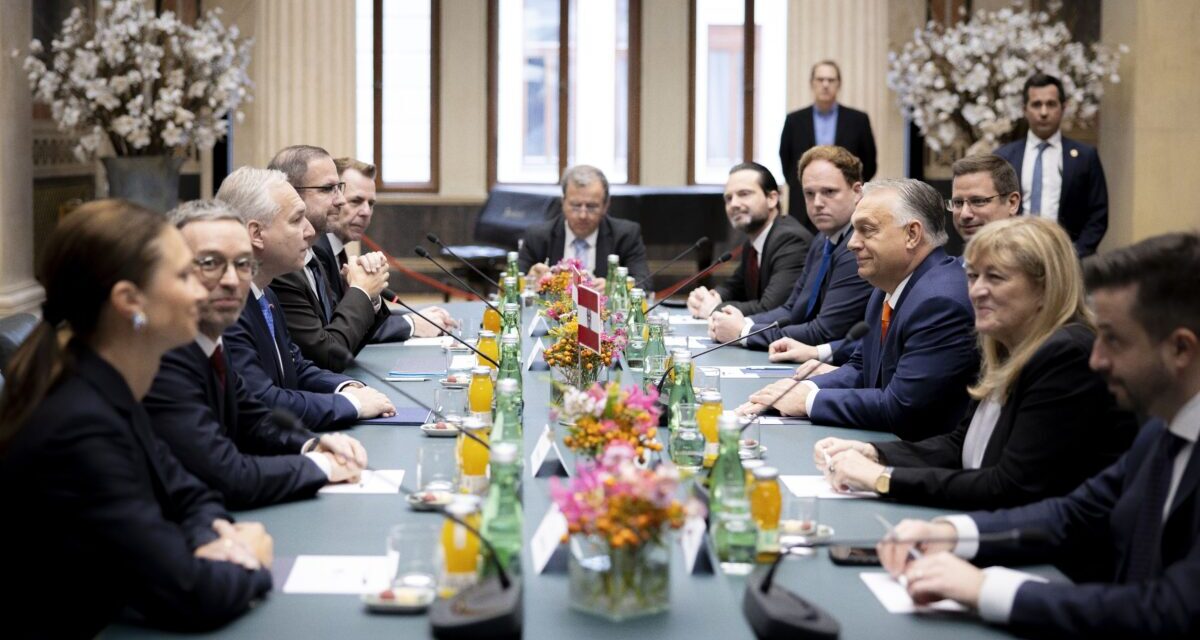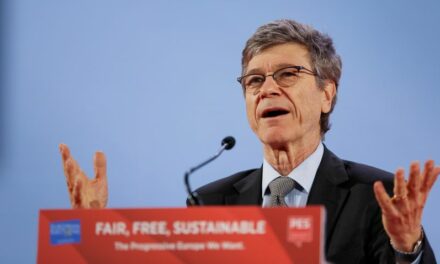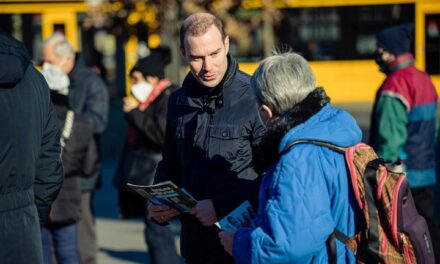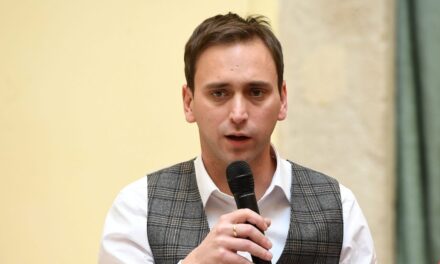The common foundations of the new organization may be the rejection of migration and the turning of the union in a sovereignist direction.
Viktor Orbán's trip to Georgia will help strengthen the EU's Eastern Partnership and Hungarian-Georgian economic cooperation, while the main purpose of the Hungarian Prime Minister's visit to Vienna on Thursday is to meet Fidesz-KDNP and the two leading Austrian right-wing forces, the Freedom Party, which is the speaker of the parliament, and the Chancellor of Austria It serves to strengthen the relations between the People's Party and the Central European migration policy, explained Kiszelly Zoltán.
The political analysis director of Századvég tried to explain why it is so difficult for the left-liberal politicians of the EU to accept the result of the democratic election in Georgia:
"Primarily because the election did not bring the result they expected. There are two large blocs, the Western Balkans and the Eastern Partnership, which means 26 countries. We see that everywhere in Brussels they are working with the same "color revolution" or "regime change" recipe, which is not working. So the short answer to the question is that this democracy works less. We have seen this many times in the past weeks, where people are free to choose - as recently in Georgia or before that in North Macedonia - they do not choose the Western trend. On the other hand
the so-called Western, globalist alternative has lost a lot of its appeal, because nowadays it can even mean drifting into war, and the Georgians said no to that. They don't want to become a "second Ukraine", Kiszelly points out.
According to the analyst, the basis of the Brussels accusation that Russia influenced the results of the Georgian elections is that every country, every regional power is interested in having as many allies as possible.
"It also applies to Georgia that what is said on one side is also valid on the other side. An example of this is when the Georgian president summoned the EU ambassadors to her on Monday evening, or the fact that Viktor Orbán - the prime minister of Hungary holding the EU presidency - visited Tbilisi. Just as we saw Western interference in the Hungarian elections through the "rolling dollars", it cannot be ruled out that the Russians also tried to intervene in Georgia in some way.
But as much as the Russians, at least as much the Americans and Brussels tried to assert their own will and ideas," he pointed out.
In connection with Viktor Orbán's visit to Georgia the other day, Kiszelly stated: Georgia is a country that has long and effectively cooperated with Hungary.
"It is also important that Hungary supports the EU accession of the entire region, the countries of the Eastern Partnership. In addition, a power line will start from Azerbaijan, which will transport green electricity to Hungary via Georgia and Romania via the Black Sea. The Prime Minister of Georgia regularly visits Budapest, so the relationship between the two governments is excellent. Several Hungarian ministers accompanied the Prime Minister to Tbilisi. The Georgians confirmed that they voted in favor of the right-wing, pro-peace position in a ratio of 53-54 percent, since the Hungarian Prime Minister is also pro-peace, and the current visit is a kind of confirmation that the Georgians made the right decision".
The Hungarian Prime Minister visited Vienna on Thursday, where he was received by the recently appointed Speaker of the Austrian Parliament and also held talks with Herbert Kickl, the leader of the Austrian Freedom Party (FPÖ).
In connection with this, Kiszelly pointed out: the president of the lower house of the parliament, Walter Rosenkranz, is the candidate of the FPÖ, therefore the strongest party in the September elections. "The European Parliament (EP) faction called Patriots, of which Fidesz and the FPÖ are also members, was also founded in Vienna in June. Viktor Orbán's visit to Vienna is therefore on the one hand for the Austrian Freedom Party, but it also has a message for Austria as a neighboring country. It is also important that the leaders of the Austrian People's Party, including current Chancellor Karl Nehammer, have promised to support our country in migration policy and in the restoration of Schengen border control.
- By accepting the invitation of the Freedom Party of Austria, Viktor Orbán is also confirming Austria's stance on limiting migration. The prime minister's visit is also an important message in the sense that if Kickl were the chancellor - although he was not nominated at the moment, but if the FPÖ was given the mandate to form a government - then the V2+ axis would be formed, in which the Hungarians, Slovaks and Serbs, as well as the Austrians can participate.
Moreover, this political community of interests can be expanded with a new member, Bulgaria, because the rainbow coalition created by the dollar left failed in Sofia, based on which it is likely that the voters will make the right decision there as well.
The common basis of the now forming V2+, the common minimum, could be the rejection of migration and the turning of the union in a sovereignist direction, as well as staying out of war and strengthening the pro-peace option. The majority of the voters of these countries are in favor of this, as shown by the figures of the 2024 survey of the Századvég Europe project, pointed out Zoltán Kiszelly.
Cover image: Prime Minister Viktor Orbán (j3) and Walter Rosenkranz, representative of the Austrian Freedom Party (FPÖ), newly elected president of the Austrian parliament (b3) hold a plenary meeting in the parliament building in Vienna on October 31, 2024. In addition to the Hungarian Prime Minister, Gergely Gulyás, the Minister in charge of the Prime Minister's Office (j4), Ernõ Schaller-Baross, the representative of Fidesz in the European Parliament (j5) and Mária Schmidt, the director general of the Terror House Museum (j2).
Source: MTI/Prime Minister's Press Office/Zoltán Fischer













